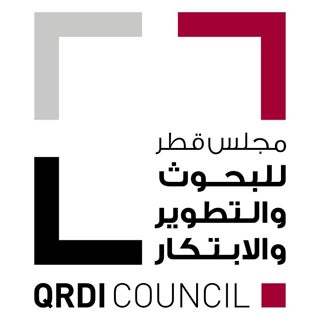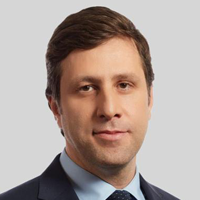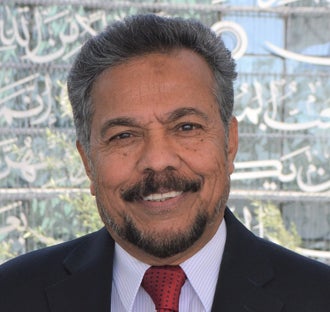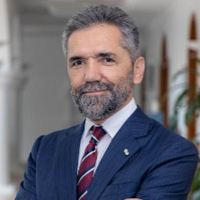7th International Conference on Islamic Finance: Towards A Rooted Future of Islamic Finance
Conference Overview
The conference will be held in English and Arabic with live interpretation for both languages.
In 2024, as technological advancements reshape our world at an unprecedented pace, the 7th International Conference on Islamic Finance (ICIF), organized by the Center for Islamic Economics and Finance at the College of Islamic Studies at HBKU, in partnership with the Qatar Financial Centre (QFC) Authority, emphasizes the critical need to anchor our progress in the enduring values of religion, culture, and history. Building on the legacy of previous generations of scholars who shaped the field, this year's conference seeks to address contemporary economic challenges and opportunities through the lens of Islamic finance.
Bridging Tradition and Innovation for a Sustainable Future
This conference serves as a dynamic platform to explore how the principles of Islamic finance can pave the way for a more sustainable and equitable economic future. The conference will explore key topics, including championing Islamic finance as a pathway to sustainable economic growth and highlighting how Islamic finance aligns profit with ethical and sustainable practices, prioritizing environmental stewardship as a core principle. By bringing together leading scholars, practitioners, policymakers, and students, the conference will cultivate a collaborative space where the future of Islamic finance is shaped through shared knowledge and experience. Furthermore, ICIF 2024 will deepen the dialogue on ethical consumption, environmental protection, and social justice within the framework of Islamic finance. Finally, the conference will examine how traditional Islamic principles can be integrated with contemporary economic practices to navigate modern complexities, effectively bridging tradition and innovation.
Conference Objectives
- Championing sustainable economic growth: Showcasing how Islamic finance can foster sustainable economic practices that are both profitable and ethically grounded, with a strong emphasis on environmental sustainability
- Foster intellectual exchange and innovation: Providing a platform for scholars, practitioners, policymakers, and students to share ideas, research findings, and innovative solutions within Islamic finance and the broader economy.
- Advancing ethical and sustainable practices: Deepening the collective understanding of how Islamic finance principles can be applied to promote ethical consumption, environmental stewardship, and social justice.
- Bridge tradition and innovation: Exploring the intersection of traditional Islamic principles and modern economic practices to effectively address contemporary challenges and shape a more equitable and sustainable future.
Chair’s Message
It is my pleasure to welcome you to the 7th International Conference on Islamic Finance (ICIF). In a world facing unprecedented technological, environmental, and socio-economic challenges, the role of Islamic finance as a beacon of ethical and sustainable economic practices is more critical than ever. This conference is a unique opportunity for us to come together, exchange ideas, and explore how Islamic finance can contribute to a more just, equitable, and sustainable global economy.
Islamic finance, with its rich heritage and principles-based approach, offers invaluable insights and solutions to many global challenges. Drawing from the Islamic ethos of sustainable economic development, social equity, and environmental stewardship, this conference seeks to explore how the next era of Islamic finance can contribute to the creation of a more sustainable, just, and equitable civilization.
I am confident that the discussions and insights shared during this conference will not only advance our understanding of Islamic finance but also inspire innovative solutions that bridge tradition with modernity. Thank you for your participation and contribution to this important discourse.
Warm regards,
Dr. Ahmet Faruk Aysan
Dean’s Message
It is my distinct pleasure to welcome you to the 7th International Conference on Islamic Finance (ICIF). As we convene for this 7th edition, in a time of rapid technological advancements, environmental crises, and evolving socio-economic landscapes, the need for a sustainable and ethically grounded economic system has never been more pronounced.
The theme of this year’s conference, "Towards a Rooted Future of Islamic Finance," underscores our commitment to promoting Islamic finance as a model for sustainable economic practices, fostering intellectual exchange and innovation, and enhancing our collective understanding of ethical and sustainable practices. We also aim to bridge the wisdom of traditional Islamic principles with the demands of contemporary economic practices, thereby addressing the challenges of our time.
We are honored to provide a platform for scholars, researchers, practitioners, and policymakers to engage in meaningful discussions, share groundbreaking research, and propose innovative solutions. I am confident that the insights and contributions from this conference will significantly advance the field of Islamic finance and help shape a future that is both rooted in tradition and responsive to modern needs.
Thank you for your support in our scholarly endeavor, and I look forward to the stimulating discussions that will undoubtedly emerge from this gathering.
Warm regards,
Sponsored by |
|||
 |
 |
||
About
About The College of Islamic Studies
HBKU’s College of Islamic Studies (CIS) was founded to become a beacon for contemporary Islamic scholarship and thought, and a platform for meaningful intellectual and cultural dialogue on Islam and Muslims. Through its nine academic offerings and research centers, the college seeks to address some of the most pressing questions facing Muslim communities today, both locally and globally. Through its offerings, the college strives to advance a better understanding of Islam and its social dimensions and to produce graduates who can contribute and excel in a rapidly changing world.
About Hamad Bin Khalifa University
Hamad Bin Khalifa University (HBKU), a member of the Qatar Foundation for Education, Science, and Community Development (QF), was founded in 2010 to continue fulfilling QF's vision of unlocking human potential. HBKU is a homegrown research and graduate studies University that acts as a catalyst for positive transformation in Qatar and the region while having a global impact.
Located within Education City, HBKU seeks to provide unparalleled opportunities where inquiry and discovery are integral to teaching and learning at all levels utilizing a multidisciplinary approach across all focus areas.
HBKU is committed to actively contributing to achieving the Qatar National Vision 2030 by building and cultivating human capacity through an enriching academic experience and an innovative research ecosystem. Through applying creativity to knowledge, students will be able to discover innovative, locally relevant solutions that have a global impact.
At Hamad Bin Khalifa University – our students, faculty, staff, partners, and leadership – all share a common belief in the power of higher education and research to make a positive impact on the development of nations.
More information at www.hbku.edu.qa
About Education City
Our flagship initiative is a campus of more than 12 square kilometers that hosts branch campuses of some of the world's leading educational institutes, a homegrown university, and other research, scholastic, and community centers. Together, these institutes make Education City a unique model of academic and research excellence, pioneering a new approach to multidisciplinary, global education and enabling breakthroughs that benefit Qatar and the rest of the world.
More information at https://www.qf.org.qa/education/education-city
About Qatar
Qatar has been an independent sovereign state since 1971. Qatar comprises an 11,500 sq. km peninsula extending northwards into the Arabian Gulf. It has 563 km of uninterrupted coastline. The country's population stands at 2.69 million and its capital city is Doha.
Local time is GMT/ UCT + 3 hours. There are no daylight savings adjustments.
Qatar has a desert climate with year-round sunshine, very hot summers, and mild winters. Mean monthly temperatures range from 17°C in January to 36°C in July, sometimes reaching highs of 45°C+ during the summer. Rain is infrequent, falling in brief showers mainly in winter.
Capital: Doha
Population: 2.68 million
Area: 11,500 sq. km
Language: Arabic
Religion: Islam
Currency: Qatari Riyal
Power Connection: The power plugs and sockets are of type D and G. The standard voltage is 240 V and the standard frequency is 50 Hz.
Transportation
Karwa is the national taxi and limousine service. To book a taxi call +974 800 8294. You can pay by cash, bank card, or mobile payment.
Karwa taxis can be ordered or pre-booked via the Karwa Taxi app (available on iOS and Android), or hailed from the street.
UBER taxi service is also active in Qatar.
You can use your international driving license for seven consecutive days.
Metro
The metro system has three lines (Gold, Green, and Red) covering 37 stations. Trains run every 3 minutes and staff are available at every station to assist you during your journey.
You can buy a travel card at stations and then save time by topping up online or on the Qatar Rail app (iOS and Android)
All stations have elevators and all train carriages provide space for wheelchair users and pushchairs, as well as guide dog allowances. You can check the Qatar Rail website before you travel.
Free Metrolink buses run useful routes within 2 - 5 km of stations.
If you are traveling to central Doha, you can take the metro to one of these stations, which are conveniently located to access the Corniche area. You can change lines at Al Bidda (Red and Green) stations and Msheireb (Red, Green and Gold)
More information at https://www.qr.com.qa/home
Currency Exchange (March 2023)
Minor Unit: 1/100 = Dirham
- 1.00 EUR = 3.88 QAR
- 1.00 USD = 3.64 QAR
- 1.00 GBP = 4.40 QAR
More information at https://www.visitqatar.qa
Submission
Conference Topics
We invite paper submissions from scholars and experts in the field. The conference is set to cover a wide range of topics, including but not limited to:
- The role of Islamic finance in promoting economic sustainability and environmental stewardship.
- Innovations in Islamic banking and finance.
- The impact of Islamic finance on social equity and poverty alleviation.
- The intersection of Islamic finance, Mqasid al-Shariah, and Sustainable Development Goals (SDGs).
- Ethical wealth management and Islamic finance.
- Case studies on successful sustainable Islamic finance projects.
Participants are encouraged to focus on one aspect according to their specialization.
Submission Link:
https://hbku.wufoo.com/forms/z1rn5wqs0p6giwb/
Important dates
Paper Submission Deadline: October 2, 2024
Paper Acceptance Notification: November 10, 2024








